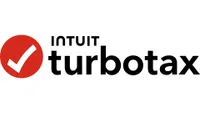TurboTax Review: Features, Pricing and Filing Options for This Tax Season
A closer look at TurboTax's pros and cons to help you decide if it’s the right tax filing software for this tax season.

Profit and prosper with the best of Kiplinger's advice on investing, taxes, retirement, personal finance and much more. Delivered daily. Enter your email in the box and click Sign Me Up.
You are now subscribed
Your newsletter sign-up was successful
Want to add more newsletters?

Delivered daily
Kiplinger Today
Profit and prosper with the best of Kiplinger's advice on investing, taxes, retirement, personal finance and much more delivered daily. Smart money moves start here.

Sent five days a week
Kiplinger A Step Ahead
Get practical help to make better financial decisions in your everyday life, from spending to savings on top deals.

Delivered daily
Kiplinger Closing Bell
Get today's biggest financial and investing headlines delivered to your inbox every day the U.S. stock market is open.

Sent twice a week
Kiplinger Adviser Intel
Financial pros across the country share best practices and fresh tactics to preserve and grow your wealth.

Delivered weekly
Kiplinger Tax Tips
Trim your federal and state tax bills with practical tax-planning and tax-cutting strategies.

Sent twice a week
Kiplinger Retirement Tips
Your twice-a-week guide to planning and enjoying a financially secure and richly rewarding retirement

Sent bimonthly.
Kiplinger Adviser Angle
Insights for advisers, wealth managers and other financial professionals.

Sent twice a week
Kiplinger Investing Weekly
Your twice-a-week roundup of promising stocks, funds, companies and industries you should consider, ones you should avoid, and why.

Sent weekly for six weeks
Kiplinger Invest for Retirement
Your step-by-step six-part series on how to invest for retirement, from devising a successful strategy to exactly which investments to choose.
Tax season can feel overwhelming, but the right software can simplify the process. TurboTax is one of the most popular tax filing options, known for its user-friendly interface, step-by-step guidance and features designed to help filers maximize refunds while minimizing errors.
As of March, the IRS reported the average direct deposit tax refund this year is $3,330. With that much money on the line, it’s important to use a tool that checks for errors and helps you file with confidence.
TurboTax is especially well-suited for people filing simple tax returns — think W-2 income, student loan interest and a few common tax credits. While its free version works well for basic needs, paying for a higher tier can be worth it for the added support if your return is a bit more complicated.
From just $107.88 $24.99 for Kiplinger Personal Finance
Become a smarter, better informed investor. Subscribe from just $107.88 $24.99, plus get up to 4 Special Issues

Sign up for Kiplinger’s Free Newsletters
Profit and prosper with the best of expert advice on investing, taxes, retirement, personal finance and more - straight to your e-mail.
Profit and prosper with the best of expert advice - straight to your e-mail.
With tax laws changing regularly, TurboTax remains valuable thanks to its in-depth guidance, educational resources and hands-on help throughout the filing process.
The company is also investing heavily in AI to help automate filing and catch potential mistakes in real-time.
So, is TurboTax right for you? Let’s take a closer look at the pros, cons and everything in between.
How to choose the right version of TurboTax
Selecting the right TurboTax option depends on your tax situation. The goal is to get the features you need — without paying for upgrades you don’t.
The online version offers the flexibility of accessing your tax information from any internet-connected device, with data securely stored in the cloud. You can switch back and forth between TurboTax online and the app seamlessly.
You can use the app to snap a pic of your W-2 and other documents and your information will be automatically entered in your return. It’s important to note that the mobile app doesn’t have access to the print center or tax tools.
The desktop version is installed on your computer, allowing for offline access and local data storage. Both versions support state tax returns, though additional fees may apply.
TurboTax provides various support levels, ranging from self-service to live assistance and full-service options where a tax expert manages your entire return. The following breaks down of some of the available options:
- TurboTax Free Edition (Free): Ideal for simple tax situations, such as W-2 income, limited interest and dividend income and claiming the standard deduction. TurboTax Free Edition. ~37% of filers qualify. Simple Form 1040 returns only (no schedules, except for EITC, CTC, student loan interest, and Schedule 1-A).
- TurboTax Deluxe ($69): Recommended for taxpayers looking to maximize deductions and credits, especially if you have significant deductions like mortgage interest, charitable contributions or medical expenses. Users can upgrade to Deluxe Assisted ($119) and get unlimited expert help while filing.
- TurboTax Premier ($115): Good for individuals with investment income, including stocks, bonds, ESPPs, crypto transactions or rental property income. Includes 5 federal e-files and one state download. Live expert tax advice is an additional $50 ($10 savings).
- TurboTax Premium ($129): Designed for freelancers, contractors and small business owners to help identify industry-specific deductions and expenses. Users can upgrade to Premium Assisted ($199) and get unlimited expert advice while filing.
TurboTax software can be downloaded directly from the TurboTax website, or purchased from popular retailers like Costco and Best Buy, both online and in-store.
These retailers often offer bundles or limited-time discounts, so it’s worth comparing prices before you buy.
There are several discounts and free filing options available for those who qualify. USAA members can access exclusive savings when purchasing TurboTax through the USAA website.
While active-duty and reserve military members may be eligible to file their federal and state tax returns for free.
TurboTax features that help maximize your tax refund

TurboTax offers several features designed to simplify tax preparation and help users get the biggest possible refund. One standout feature I really like is the ability to import W-2s, 1099s and investment income reports directly from financial institutions.
This can save time and reduce errors, especially for users with multiple income sources — though not all financial institutions are supported.
TurboTax offers a tool called the Deduction Maximizer, which helps users uncover tax breaks they might otherwise miss. It scans for eligible deductions and credits, including mortgage interest, student loan interest and charitable contributions.
While this tool can boost refunds, it may occasionally encourage upgrades that aren't necessary for every tax situation.
For those seeking additional help, TurboTax Live connects users with tax experts for real-time assistance. This service is ideal for complex returns but comes at an added cost, which may not be worthwhile for simpler filings.
TurboTax also includes an accuracy guarantee and audit support. While these features offer peace of mind, it's important to note that audit support is limited to guidance rather than full representation.
Get up to 30% off TurboTax Deluxe, TurboTax Premier and more popular TurboTax desktop software during the Amazon Big Spring Sale.
What to know before filing your taxes with TurboTax
While TurboTax simplifies the tax filing process, there are a few considerations to keep in mind. Before filing with TurboTax, it’s important to know that not all versions are free.
The free version is designed for simple tax returns and may not cover more complex situations like itemized deductions or certain types of income.
If your tax situation involves freelance work, rental properties or investment income, you’ll likely need to upgrade to a paid version, such as TurboTax Premier or TurboTax Premium.
Finally, users can file state tax returns through TurboTax for an additional fee in most cases. However, some states offer free filing options, so it's worth checking local requirements before paying for the add-on.
Is TurboTax the right tax software for you?
TurboTax takes much of the complexity out of tax preparation by offering a guided, user-friendly experience that supports a wide range of tax situations.
Whether you’re filing a basic return or juggling multiple income streams — like freelance work, investments, or rental properties — TurboTax provides tools and expert guidance to help you file accurately and confidently.
Features like document import and deduction-finding tools can help maximize your refund, but it’s important to consider whether you actually need the higher-tier upgrades or expert help. Not every filer will benefit from these paid add-ons, so review your tax situation carefully before choosing a version. of the software to file your taxes.
Ultimately, the goal is to simplify your tax season — not add unnecessary costs. With the right version and a clear understanding of your needs, TurboTax can make filing your taxes a streamlined and stress-free experience.
related content
Profit and prosper with the best of Kiplinger's advice on investing, taxes, retirement, personal finance and much more. Delivered daily. Enter your email in the box and click Sign Me Up.

Carla Ayers joined Kiplinger in 2024 as the eCommerce and Personal Finance Editor. Her professional background spans both commercial and residential real estate, enriching her writing with firsthand industry insights.
Carla has worked as a personal finance and real estate writer for Rocket Mortgage, Inman and other industry publications.
She is passionate about making complex real estate and financial topics accessible to all readers. Dedicated to transparency and clarity, her ultimate goal is to help her audience make informed and confident decisions in their financial pursuits.
-
 5 Vince Lombardi Quotes Retirees Should Live By
5 Vince Lombardi Quotes Retirees Should Live ByThe iconic football coach's philosophy can help retirees win at the game of life.
-
 The $200,000 Olympic 'Pension' is a Retirement Game-Changer for Team USA
The $200,000 Olympic 'Pension' is a Retirement Game-Changer for Team USAThe donation by financier Ross Stevens is meant to be a "retirement program" for Team USA Olympic and Paralympic athletes.
-
 10 Cheapest Places to Live in Colorado
10 Cheapest Places to Live in ColoradoProperty Tax Looking for a cozy cabin near the slopes? These Colorado counties combine reasonable house prices with the state's lowest property tax bills.
-
 Don't Bury Your Kids in Taxes: How to Position Your Investments to Help Create More Wealth for Them
Don't Bury Your Kids in Taxes: How to Position Your Investments to Help Create More Wealth for ThemTo minimize your heirs' tax burden, focus on aligning your investment account types and assets with your estate plan, and pay attention to the impact of RMDs.
-
 Ask the Editor, February 6: Questions on Federal Income Tax Deductions
Ask the Editor, February 6: Questions on Federal Income Tax DeductionsAsk the Editor In this week's Ask the Editor Q&A, Joy Taylor answers questions on federal income tax deductions
-
 Retiring Next Year? Now Is the Time to Start Designing What Your Retirement Will Look Like
Retiring Next Year? Now Is the Time to Start Designing What Your Retirement Will Look LikeThis is when you should be shifting your focus from growing your portfolio to designing an income and tax strategy that aligns your resources with your purpose.
-
 I'm a Financial Planner: This Layered Approach for Your Retirement Money Can Help Lower Your Stress
I'm a Financial Planner: This Layered Approach for Your Retirement Money Can Help Lower Your StressTo be confident about retirement, consider building a safety net by dividing assets into distinct layers and establishing a regular review process. Here's how.
-
 I'm a Financial Adviser: This Is Why I Became an Advocate for Fee-Only Financial Advice
I'm a Financial Adviser: This Is Why I Became an Advocate for Fee-Only Financial AdviceCan financial advisers who earn commissions on product sales give clients the best advice? For one professional, changing track was the clear choice.
-
 4 Ways Washington Could Put Your Retirement at Risk (and How to Prepare)
4 Ways Washington Could Put Your Retirement at Risk (and How to Prepare)Legislative changes, such as shifting tax brackets or altering retirement account rules, could affect your nest egg, so it'd be prudent to prepare. Here's how.
-
 2026's Tax Trifecta: The Rural OZ Bonus and Your Month-by-Month Execution Calendar
2026's Tax Trifecta: The Rural OZ Bonus and Your Month-by-Month Execution CalendarReal estate investors can triple their tax step-up with rural opportunity zones this year. This month-by-month action plan will ensure you meet the deadlines.
-
 Have You Aligned Your Tax Strategy With These 5 OBBBA Changes?
Have You Aligned Your Tax Strategy With These 5 OBBBA Changes?Individuals and businesses should work closely with their financial advisers to refine tax strategies this season in light of these five OBBBA changes.
